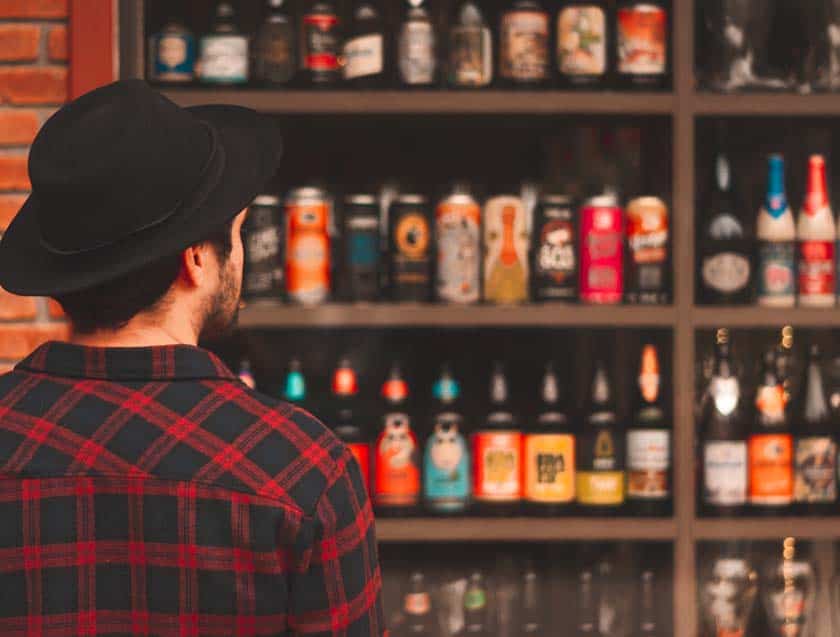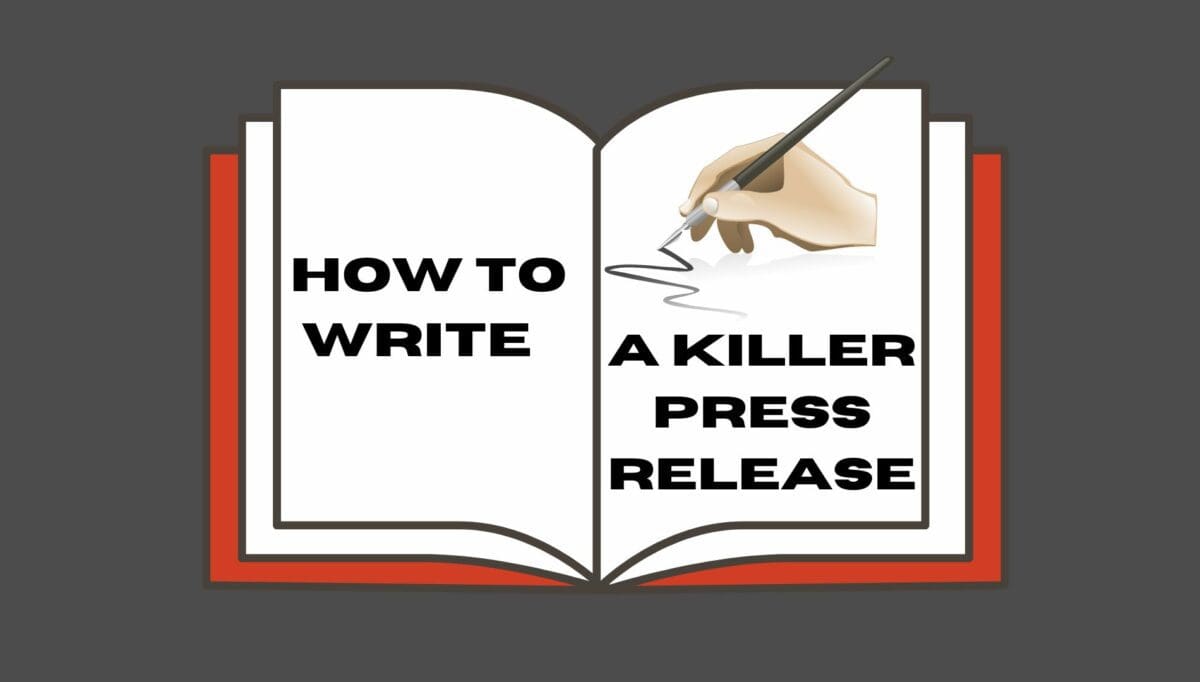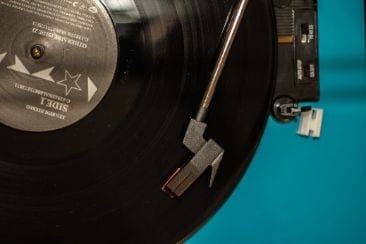An alcoholic drink might help calm your nerves before a show or be a nice way to celebrate after a gig. But does alcohol affect your singing voice? Is there such as thing as the best alcohol for singers? Are some alcohols better than others for musicians, or should a singer avoid having a drink at all costs before they perform?
The bottom line is this; alcohol has a severe impact on the voice. It leaves your vocals raspy, dry and cracked. It can also impair other aspects of your performance as a musician. Some alcoholic drinks are less damaging, but it’s strongly advised you avoid any alcohol before singing. But before we get into the detail of alcohol and singing, here are a few warnings for you:
Why do I lose my voice when I drink alcohol?
Alcohol can be abrasive against your throat and causes a chemical irritation to the voice box. If you drink heavily, or over a long period of time, this irritation can strain your vocal cords and result in a lost voice.
Does alcohol make your voice raspy?
Yes, alcohol can make your voice raspy and will affect your singing voice. Alcohol can irritate a singer’s larynx leading to swollen and inflamed vocal cords. This will make your singing voice have a raspy sound or project at a lower pitch than normal.
Does alcohol change your voice?
Yes, alcohol can change your singing voice. If you drink excessive amounts of alcohol, the chemical irritation can become so severe you can develop chronic laryngitis, and this will result in prolonged spells of voice loss.
While alcoholic drinks are not recommended as part of a healthy diet for singers, some types of alcohol are better suited to help nerves, sore throats, and vocal complaints. However, even these have their side effects. Read on to learn what to drink and what to avoid at all costs as a singer and scroll nearer to the bottom of the page to see what alcohol is good for your voice (possibly!).
Does alcohol affect the voice?
Drinking any type of alcohol before singing at a show can trigger a long list of vocal impairments. It can cause your voice to crack, dehydration, additional mucus, and an impaired vocal range.
Your vocal folds need proper hydration to function and perform well. Alcohol has a severe dehydrating effect on the entire body, especially the mouth, and will remove moisture from your vocal cords. This inhibits them from vibrating properly; constricting your range and leaving your voice sounding strained and cracked.
Alcoholic drinks will also make you produce more mucus. This hinders your vocal cords as it reduces their flexibility and leaves you needing to clear your throat – which isn’t a good look midway through a song.
It can take as long as 6 to 7 hours to rehydrate by drinking water after a heavy drinking session. The other symptoms of a hangover can stick around for even longer, keeping you off your A-game for days to come.
How does alcohol affect singers?
Alcohol can affect your voice, body, and entire performance as a singer. Some singers claim there are some advantages to having a drink before a show, but the disadvantages largely outweigh the positives.
Negative effects of alcohol on singers
- Numbness
- Dehydration
- Loss of coordination
- Slurred speech
- Low mood and anxiety when the initial buzz wears off
- A cracked, raspy voice
- Can aggravate reflux
- Reduced precision
Positive effects for singers
While you should never drink before an audition or performance, alcohol releases endorphins which can make you feel more relaxed and some drinks like port and brandy can soothe a sore throat.
Can singers drink alcohol?
Alcohol can affect people differently and everyone has different tolerances. With a long list of potential side effects, it’s best to avoid alcohol before you sing. If you’re a singer and you really want to drink, try to make an informed decision about what alcoholic beverages will be less damaging to your voice.
Alcoholic drinks to avoid
Wine
Wine isn’t a good choice before a performance. Wines are packed with preservatives which will dry out your throat and change the sound of your voice.
There are different alcohol contents in wine, but don’t be tempted to choose a brand with low alcohol content. These are often sweeter and have higher sugar content, which is another threat to your voice.
Beer
Beer comes with a whole host of negative side effects on your singing voice. As beer is slightly acidic, it will cause mucus in your throat which will interfere with your airstream and breathing technique.
The alcohol content will also dry out and shrivel your vocal cords, making your voice sound far from its best.
Cocktails
Cocktails are a no-go for singers. The combination of sugary syrups, fruit juices, and sodas mixed into alcohol is a minefield for your voice.
Cocktails are frighteningly high in sugar. Processed sugar should be avoided at all costs before singing because it will coat your throat in phlegm and cause a massive crash in energy when the initial sugar rush wears off. The fruit juice in cocktails can also be acidic and cause acid reflux.
Cocktails like Long Island Iced Tea, Dark and Stormy, and Pimms are all made with carbonated drinks like coke and lemonade. Cocktails containing sodas can make you get drunk quicker because carbonation speeds up the absorption of alcohol in your bloodstream. This makes drinking cocktails before a show more detrimental, as your motor functions will be affected more quicker.
Alcohol to drink in moderation
Port
Port is used as a vocal remedy to soothe sore throats, suggesting it has healing properties for the singing voice. Though port is still an alcoholic drink, it isn’t as damaging to your performance as other alcohols if consumed in moderation.
A sip of port before a performance is said to bring heat to your throat and help ease a sore throat.
Whiskey
It’s said that Frank Sinatra drank Jack Daniels every day of his singing career, and that whiskey helped him reach his high notes.
While this might not strictly be true (as all types of alcohol dry out the vocal cords and reduce your range), whiskey can help clear your throat. Some singers suggest it also gives their voice a desirable rough, gravelly tone.
Brandy
Brandy is considered a medical ailment that can have a positive effect on your health. It can also offer some vocal benefits to singers, making it one of the better alcoholic drink choices.
Due to its anti-inflammatory polyphenolic compounds, brandy can soothe a sore throat. It can also boost your immune system and help with a cough, so a small measure can help singers warm their vocals.
Vodka
Neat vodka has fewer additives than most dark alcoholic beverages. It has stress–reducing qualities that can calm and relax your brain, which can help settle your nerves before getting on stage. Avoid mixing vodka with anything fizzy or high in sugar as this will counteract its advantages.
Best alcohol for singers (small amounts)
Below are a few suggestions on what alcohol is good for your voice – in moderation of course!
To keep your voice at its optimum for a show, it’s best to save drinking alcohol until after your gig. But if you’re having one, musicians recommend these drinks in small amounts:
- Brandy or Whiskey mixed with honey
- Vodka
- Vodka mixed with cordial
- Gin
- Port
Everyone has different alcohol tolerances so it’s best to find what works best for your voice and keep any drinking before your show to a minimum.
Make sure you drink plenty of water after drinking alcohol and allow yourself 24 hours for your body to rehydrate before you sing again.
Are drink mixers bad for singers?
Drink mixers are the non-alcoholic ingredients that are added to cocktails and alcoholic drinks for flavour. The most common mixers are carbonated drinks (like coke and lemonade), dairy products (like cream and milk), juices, and syrups. Each type of mixer poses a different threat to a singer’s voice.
Carbonated mixers like Coke and Red Bull contain caffeine and will amplify the dehydrating effect of an alcoholic drink. Most sodas are also diuretics, meaning they increase the production of urination. Nothing will ruin your professionalism like not being able to hold your bladder before a show.
Mixers that contain dairy are also a threat as they will cause excess phlegm in your throat before you sing. Dairy mixers are usually found in cocktails, but juices and syrups can make their way into spirits too. Juices and syrups mixed into any type of alcohol will impair your vocals as the acidic, sugary content will coat your throat.
Is tonic water full of sugar?
Tonic water is often used as a drink mixer, especially in cocktails and gin or vodka drinks. It comes in a variety of flavours and has a slightly bitter taste due to the added quinine. But don’t let the bitter taste fool you – many tonic water can be fairly high in sugar.
The average tonic water contains 7-8g of sugar per 100ml, the equivalent of two teaspoons of sugar. Consuming too much sugar before you sing will coat your throat with mucus, so it’s best to stick to the one drink rule before you sing.
Singers recommend you mix your tonic with vodka or gin (or opt for whiskey with honey instead) and avoid cocktails at all cost.
Mixing energy drinks with alcohol
Mixing energy drinks like Red Bull with alcohol can be disastrous for a singer. Alcohol will impair your brain’s motor function and leave you feeling drowsy and lightheaded. But when you combine alcohol with energy drinks, the caffeine and stimulants in the mixers mask these warning signals and hide the effects of the alcohol.
This can trick you into thinking you’re less drunk than you are. This is worrying as it can make you think you’re fit for performance when you’re physically not, and you might burn out on stage.
Is Kombucha good for singers?
Kombucha is a sweet but acidic strain of black or green tea that’s produced from fermentation. The process of fermentation involves sugar breaking down into alcohol and carbon dioxide, so kombucha tea contains traces of alcohol.
Kombucha only has 0.5% alcohol per serving; a volume so small it is commercially labelled as a non-alcoholic drink. As the traces of alcohol are so minimal, this shouldn’t affect your voice as a singer.
Though the alcohol in kombucha won’t hamper your vocals, there are other qualities of green tea that might. The caffeine in green tea can dehydrate your vocal cords and the amino acids in kombucha can sometimes cause headaches. Kombucha packs lots of great health benefits so is a good, healthy drink to enjoy on the days you’re not due to perform.
How much alcohol can a singer drink?
Your alcohol tolerance is determined by factors like gender, body mass, and how often you drink. As a musician, you need to know your tolerance and limits, so you can make informed decisions about how much (if at all) you can drink before a show without it affecting your performance.
The ideal amount for a singer to drink before they perform is nothing. The dehydrating and disorientating properties of alcohol are too harmful to your performance. Even if you think you can handle your drink, you may not be able to control the effect it has on your voice.
If you are drinking alcohol before you sing, it’s best to drink as little as possible. One drink to take the edge off will always be better than a heavy drinking session. It can take 30 minutes before the effect of alcohol begins to kick in, and roughly two hours for the effects to wear off.
Bear in mind that a heavy drinking session will have after–effects that can stay with you into the next day, so it isn’t wise to drink heavily if you’re touring or performing back-to-back shows.
Frequently Asked Questions
How long does it take for alcohol to wear off?
Age, gender and weight will all affect how long alcohol stays in your blood. On average, your body will take around one hour to break down one unit of alcohol. One unit is equivalent to a single measure of spirits, or half a glass of average-strength wine.
The effects of alcohol and intoxication can stay with you for as long as 48-72 hours after you finish drinking.
Getting through a long line of back-to-back gigs will be hard with a hangover, so bear your future shows in mind before you hit the pub!











